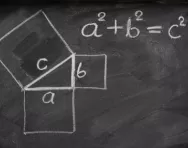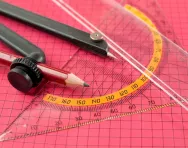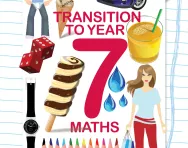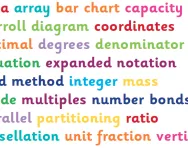Important update from TheSchoolRun
For the past 13 years, TheSchoolRun has been run by a small team of mums working from home, dedicated to providing quality educational resources to primary school parents. Unfortunately, rising supplier costs and falling revenue have made it impossible for us to continue operating, and we’ve had to make the difficult decision to close. The good news: We’ve arranged for another educational provider to take over many of our resources. These will be hosted on a new portal, where the content will be updated and expanded to support your child’s learning.
What this means for subscribers:
- Your subscription is still active, and for now, you can keep using the website as normal — just log in with your usual details to access all our articles and resources*.
- In a few months, all resources will move to the new portal. You’ll continue to have access there until your subscription ends. We’ll send you full details nearer the time.
- As a thank you for your support, we’ll also be sending you 16 primary school eBooks (worth £108.84) to download and keep.
A few changes to be aware of:
- The Learning Journey weekly email has ended, but your child’s plan will still be updated on your dashboard each Monday. Just log in to see the recommended worksheets.
- The 11+ weekly emails have now ended. We sent you all the remaining emails in the series at the end of March — please check your inbox (and spam folder) if you haven’t seen them. You can also follow the full programme here: 11+ Learning Journey.
If you have any questions, please contact us at [email protected]. Thank you for being part of our journey it’s been a privilege to support your family’s learning.
*If you need to reset your password, it will still work as usual. Please check your spam folder if the reset email doesn’t appear in your inbox.
What your child learns in Key Stage 3 maths

Maths is usually taught in ability sets in KS3. Children will use mental and written methods, as well as calculators and ICT, such as spreadsheets. They will work on problems linked to other subjects, and also to everyday life.
The focus is on developing mathematical fluency, mathematical reasoning and problem-solving.
The curriculum includes:
KS3 number
- Place value
- Positive and negative integers, decimals and fractions
- Prime numbers, factors and multiples
- The four operations (add, subtract, multiply, divide)
- Using conventional notation for the priority of operations
- Powers and roots
- Terminating decimals and their corresponding fractions
- Percentages
- Units of mass, length, time, money etc
- Rounding up/down
- Approximation and estimation
- Using calculators and technology to solve problems
KS3 algebra
- Using and interpreting algebraic notation
- Substituting numerical values into formulae
- The concepts of expressions, equations, inequalities, terms and factors
- Simplifying algebraic expressions
- Understanding and using standard mathematical formulae
- Linear equations
- Coordinates in all four quadrants
- Graphs of linear and quadratic functions
- Approximate solutions to conceptual problems
- Arithmetic and geometric sequences
KS3 ratio, proportion and rates of change
- Changing between standard units
- Scale factors, scale diagrams and maps
- Ratio notation
- Expressing quantities as ratios or fractions
- Solving percentage change problems
- Direct and inverse proportion
- Compound units such as speed, density and unit pricing
KS3 geometry and measures
KS3 probability
- Recording, describing and analysing probability experiments
- Tables, grids and Venn diagrams
- Theoretical sample spaces for single and combined events
KS3 statistics
- Mean, mode, median, range and spread of outliers
- Constructing and interpreting frequency tables, bar charts, pie charts, pictograms, scatter graphs and vertical line charts
- Describing simple mathematical relationships between two variables
For more information about the Y7 maths curriculum, read our parents' guide to Y7 maths.









